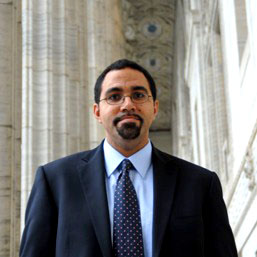The Common Core education standards debate was front and center in Albany this week. After a back and forth debate on the Assembly floor that lasted four hours, the Assembly voted Wednesday to delay and change portions of the Common Core education standards in New York.
“I have traveled my district listening to the concerns and suggestions of teachers, parents and administrators regarding the flawed implementation of the Common Core standards,” said Assemblyman Kenneth Zebrowski, D-New City. “I am pleased to announce I co-sponsored a bill that passed the Assembly that will take immediate action to correct the rushed roll-out of Common Core (A.8929).”
 According to The Journal News Albany Bureau reporter Jon Campbell, the Assembly bill would pause Common Core-based test scores for teacher evaluation (APPR composite effectiveness score) through the 2015 school year and Common Core-based test scores would not be the sole test score consideration to decide whether to promote students to the next grade level.
According to The Journal News Albany Bureau reporter Jon Campbell, the Assembly bill would pause Common Core-based test scores for teacher evaluation (APPR composite effectiveness score) through the 2015 school year and Common Core-based test scores would not be the sole test score consideration to decide whether to promote students to the next grade level.
The Assembly bill also addressed the infamous inBloom third-party database program and “would prevent the state Education Department from releasing identifiable student data to inBloom until mid-2015, with parents able to opt their children out of participating.”
Although the Assembly vote passed 121-10, with bipartisan support, the bill is expected to stall in the state senate.

Dr. John B. King, Jr.
Commissioner of Education and
President of the University of the State of New York
NY State Education Commissioner John King and Regents Chancellor Merryl Tisch advocated against any disruption of the Common Core rollout, and argued that some provisions of the bill violate federal law.
At the heart of the debate are concerns that balking at Common Core standards and the newly developed teacher evaluations would jeopardize New York’s Race to the Top federal grant money, which paid began paying out some $700 million dollars in 2010 for participation in the program. According to LoHud, the federal funds will be paid out over eight year period.
The Assembly bill floor debate involved an attempt by GOP members to push “for a delay in implementing the Common Core until the 2016-17 school year while establishing a panel that would decide whether to continue with the standards at all.”
Meanwhile, Journal News education reporter Gary Stern wrote that even with the cacophony of of criticism against the Common Core standards throughout the state, current Board of Regents members may be re-elected to new five-year terms in the upcoming Regents vote.
Regents are elected via unanimous vote by the state Assembly and Senate, with four members up for Tuesday’s re-election vote. The candidate selection process is generally dominated by the Democratic controlled Assembly, with candidates needing 107 votes from lawmakers to capture a seat.
According to Stern, “No incumbent has been rejected in memory.”
The bone of contention with ousting Regents is replacing them with new Regents. On the local level, Pomona resident David Levin, a high school math teacher in the Bronx, self-nominated himself for a Regents seat.
Nyack Free Press reported that the Assembly measure addresses the following specifics:
Teacher and Principal Training
Providing schools and teachers with the resources they need to be successful is vitally important, Silver said. The legislation requires the commissioner of education to develop tools, resources and materials, in consultation with teachers and principals, for school districts to use for teacher and principal training related to Common Core implementation, he said. These resources would be developed for every mandatory subject and grade level for which the Common Core has been adopted.School districts would have the option to implement a Common Core training program for teachers and principals using these resources.
Protecting Student Data
The measure prohibits, until July 1, 2015, the Education Department from providing student data to any third party vendor that collects, stores, and organizes student data for use by certain third party vendors. Additionally, parents or students over the age 18 may opt-out of disclosing the student’s personally identifiable information and/or biometric record to any third party vendor.


